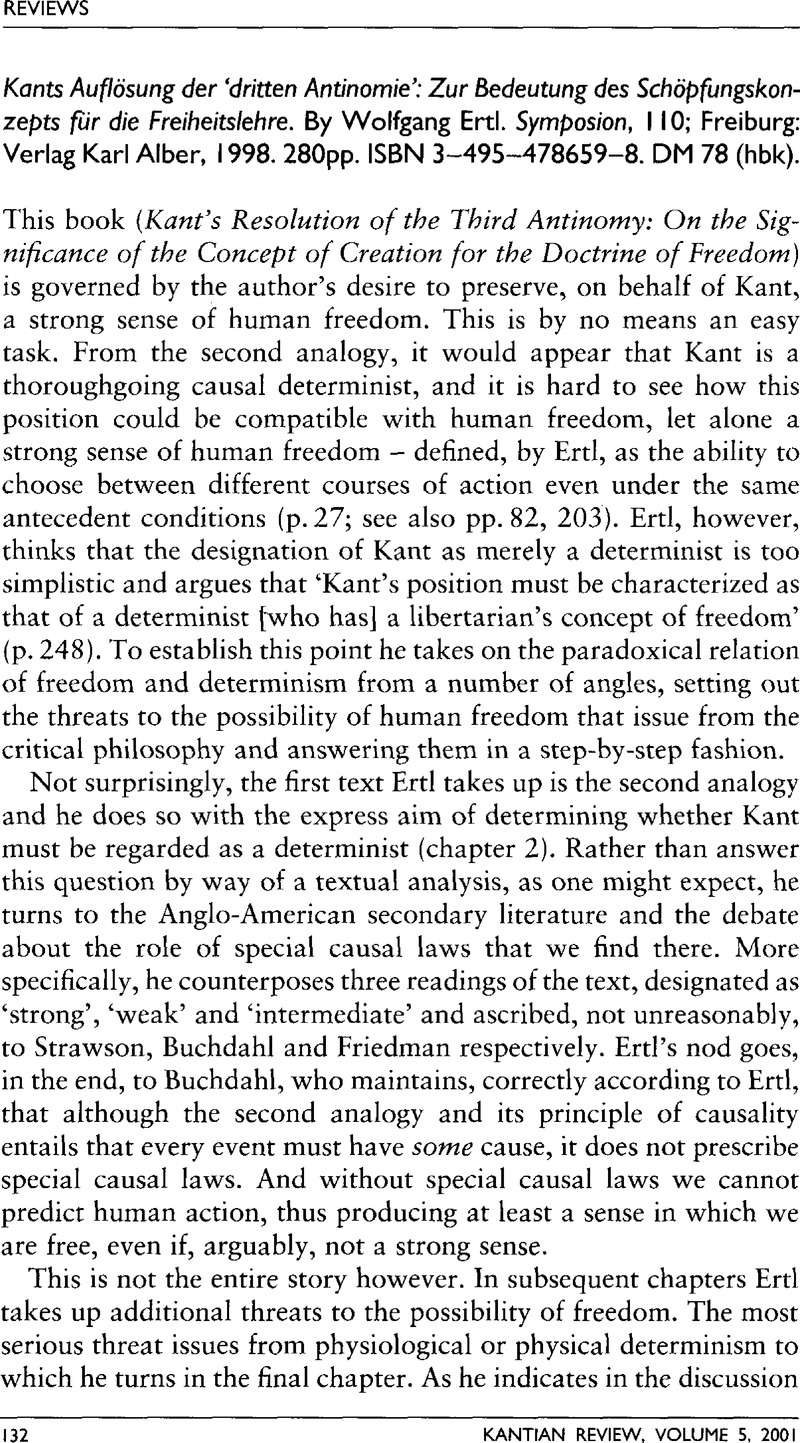No CrossRef data available.
Published online by Cambridge University Press: 25 March 2011

1 Erti himself acknowledges that the third antimony, if read according to the letter of the text, ‘fails in an almost grotesque manner’ (p. 160).
2 For a survey of the early criticisms see Landau, Albert, Rezensionen zur Kantischen Philosophie 1781–87 (Bebra: Albert Landau Verlag, 1991).Google Scholar A selection of these texts is available in English in Sassen, Brigitte (tr. and ed.), Kant's Early Critics: The Empiricist Critique of the Theoretical Philosophy (New York: Cambridge University Press, 2001).Google Scholar
3 This is the Göttingen or Feder/Garve review which appeared anonymously in the Zugabe zu den Göttingischen Anzeigen von gelehrten Sachen (19 Jan. 1782), 40–8. Reprinted in Kant, Immanuel, Prolegomena, ed. Vorländer, Karl (Hamburg: Felix Meiner Verlag), 167–74Google Scholar and Landau, , Rezensionen, 10–17Google Scholar; tr, in Walker, R. C. S., The Real in the Ideal: Berkeley's Relation to Kant (New York: Garland, 1989), pp. xv–xxivGoogle Scholar, and in Sassen, , Kant's Early Critics, 53–8.Google Scholar
4 Jacobi, Friedrich Heinrich, ‘On transcendental idealism’, in David Hume über den Glauben oder Idealismus und Realismus (Breslau: Löwe, 1787), 209–30.Google Scholar Reprinted in Beck, Lewis White (ed.), The Philosophy of David Hume (New York: Garland, 1983),Google Scholar tr. in Sassen, , Kant's Early Critics, pp. 139–54.Google Scholar
5 See, for instance, Johann Schultz's complaint that the Deduction is obscure in his review of Ulrich's Institutiones Logicae et Metaphysicae, Allgemeine Literatur-Zeitung (13 Dec. 1785), 297–9; tr. in Sassen, , Kant's Early Critics, pp. 210–14.Google Scholar